On this unit, you will learn how to use future simple in affirmative, negative and interrogative sentences to express a personal opinion based on experiences and improvised decisions.
By the end of this topic, you will make affirmative, negative and interrogative sentences to ask for information, predict future events, based on conversations, answers to daily situations and personal experiences or give opinions about an event.

Reuters (2016). Fireworks explode during the closing ceremony as a 'See You In Tokyo' sign is projected onto the floor of the stadium. Retrieved 18/10/16 from https://goo.gl/4YtFNL

Wikimedia (2009). Shenkansen (bullet train) at Yūrakuchō station tokyo japan. Retrieved 18/10/16 from https://goo.gl/OGDzUb
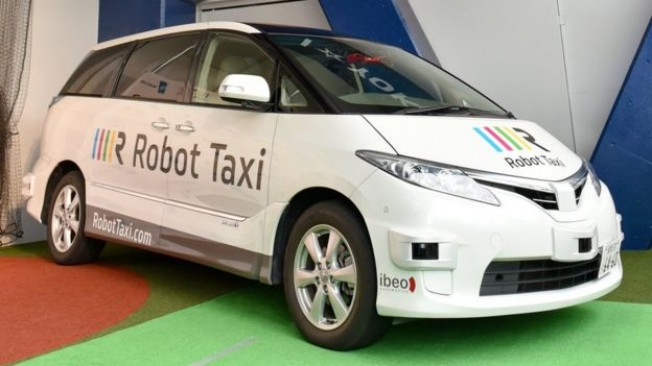
Marín, P. (2016). Retrieved 18/10-16 from http://www.motor.es/noticias/taxis-sin-conductor-test-en-japon-201626571.html

Japan Sport Council (). Zaha Hadid - New National Stadium Japan Competition Proposal 02.jpg. Retrieved 18/10/16 from https://www.flickr.com/photos/eager/8199512156
There are many ways to talk about the future and each, and every one carries an implicit meaning.
In this topic, we are going to talk about the future. You can use will in different contexts, so let’s start with the structures!
A: Welcome to my house. Come in please!
B: Thank you your house looks beautiful. Sorry I forgot to close the door.
A: Don´t worry. I’ll close it.

Aimcotest (s/f). English: A living room of an apartment in the historic Stafford apartment building. Retrieved 18/10/16 from https://commons.wikimedia.org/wiki/File:Stafford_livingroom.jpg

Montgomery, B. (2009). The door. Retrieved 18/10/16 from https://www.flickr.com/photos/bradmontgomery/4038985402
I think this color will look better on you.
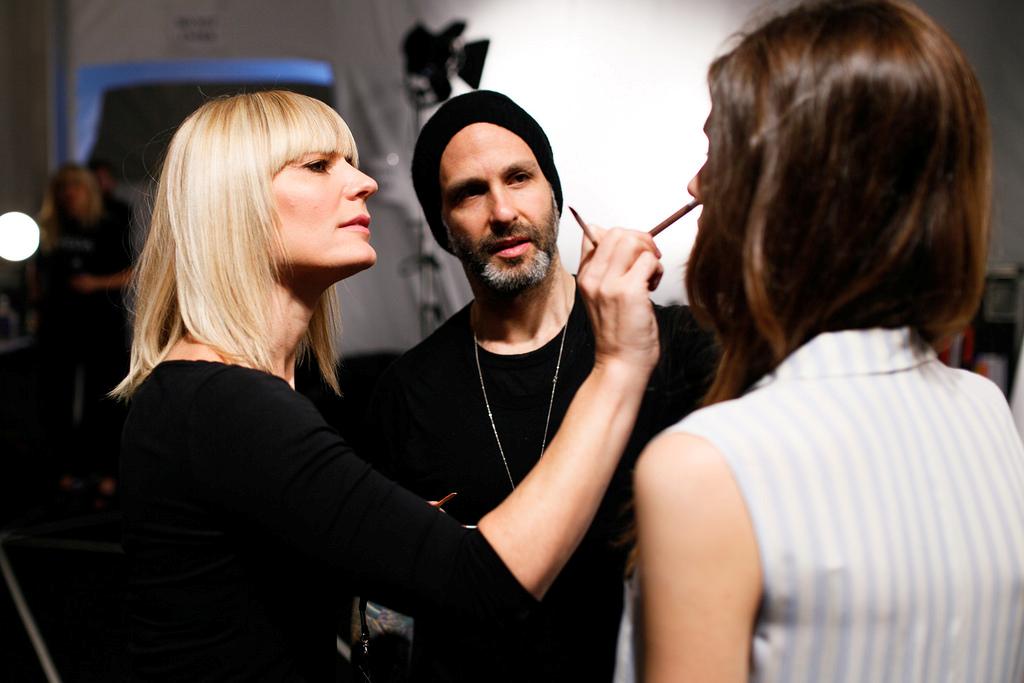
Mujumdar, S. (2016). 5 New Year Party Makeup Tips. Retrieved 18/10/16 from http://www.top5life.com/5-new-year-party-makeup-tips/
Imagine Pedro going to New Orleans and having a great holiday
Now Image Juan going to New Orleans having the worse holiday of his life.
Imagine me asking them “Do you think I will have a nice holiday in New Orleans?”
Pedro: I think New Orleans will be a great holiday for you.
Juan: New Orleans is horrible. You won´t enjoy the experience.
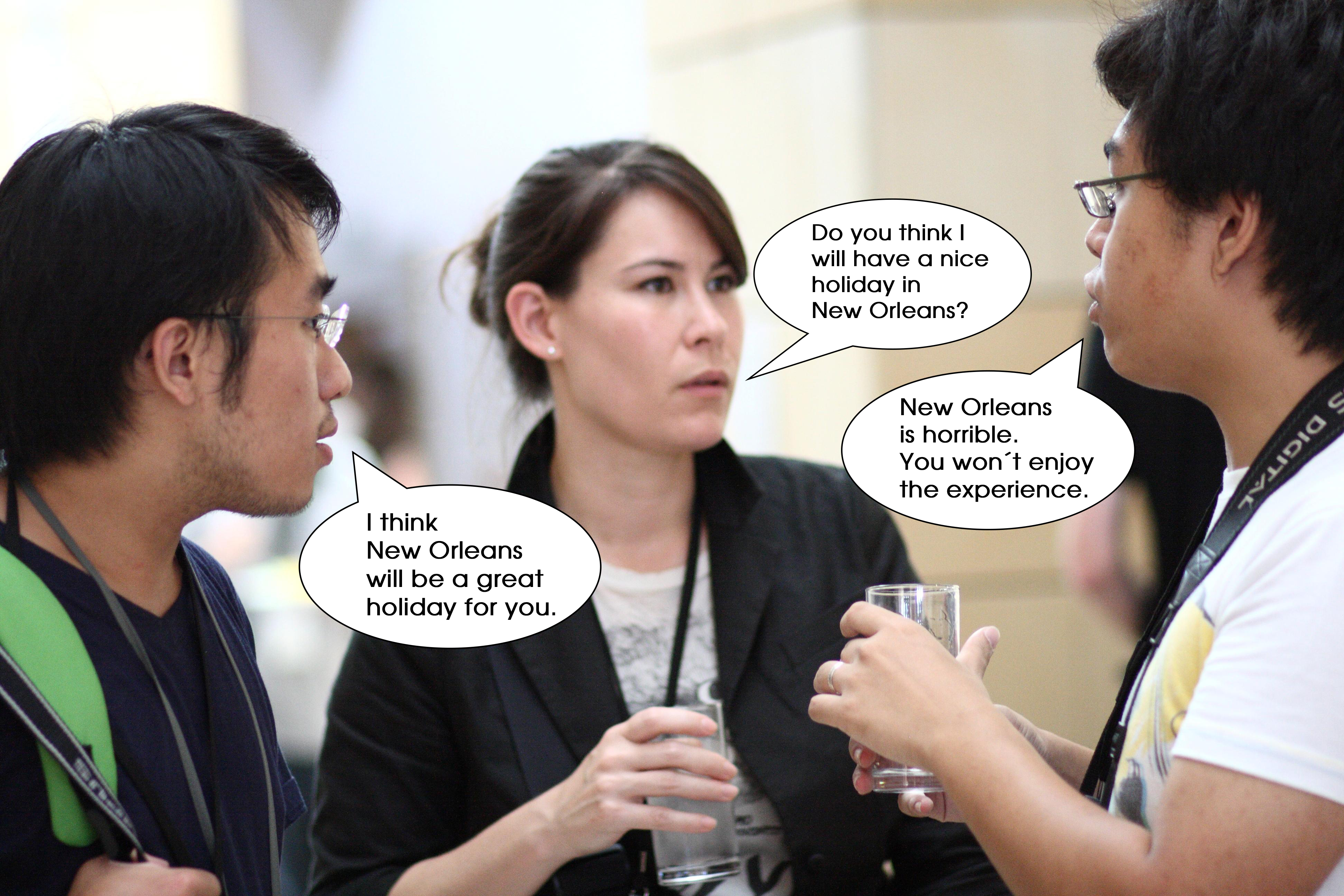
Ragesoss (2010). Conversation at Wikimania 2014. Retrieved 18/10/16 from https://commons.wikimedia.org/wiki/File:Conversation_at_Wikimania_2010_4.jpg
A: Will you marry me?
B: Yes, I will.
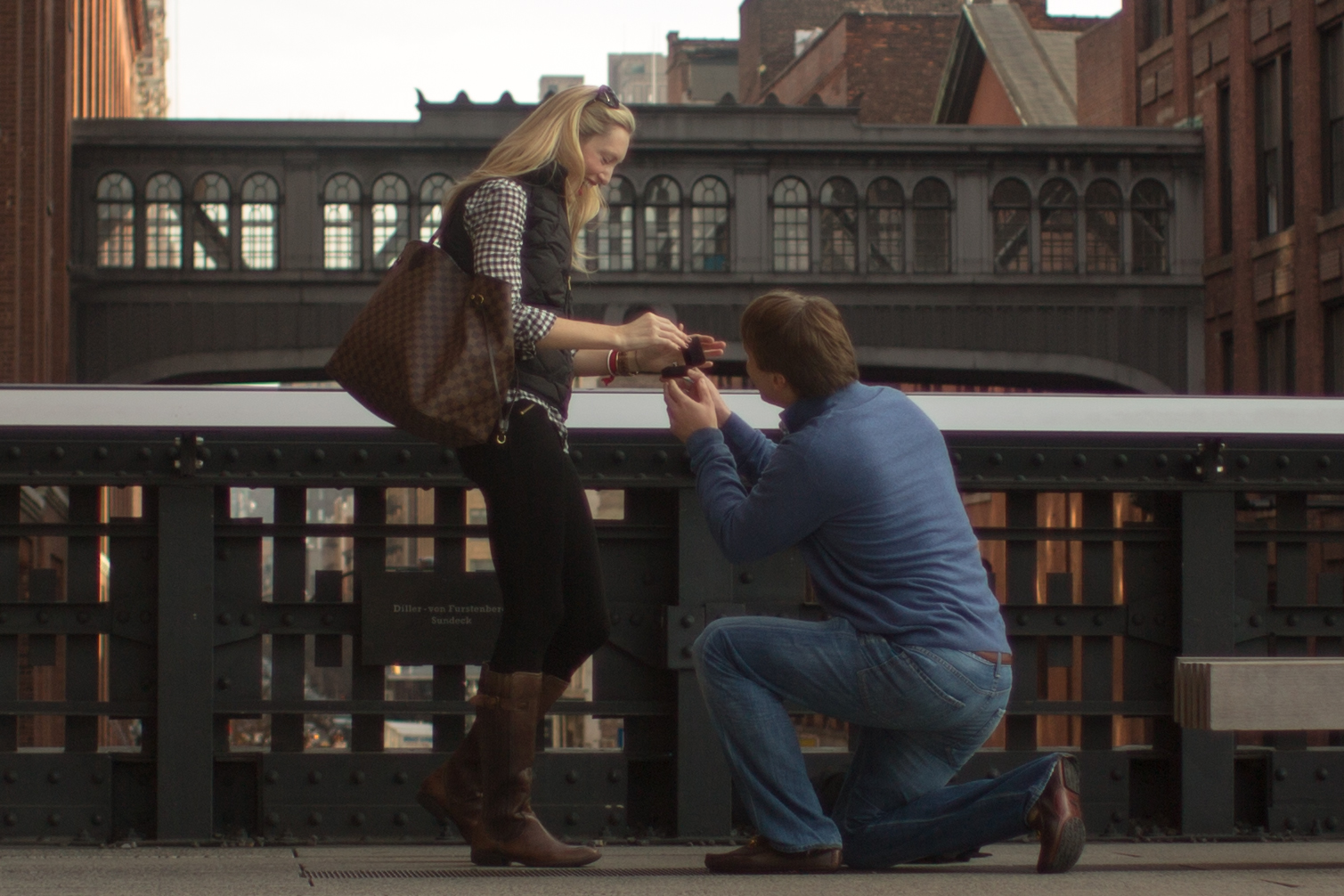
Victorgrigas (2013). A "one-knee" proposal on the High Line in New York City. Retrieved 18/10/16 from https://en.wikipedia.org/wiki/Marriage_proposal

nonformal80 (2015). Promise Day Quotes For Boyfriend 2016. Retrieved 18/10/16 from http://happy--valentineday.blogspot.mx/
Sentences using WILL use the following form.
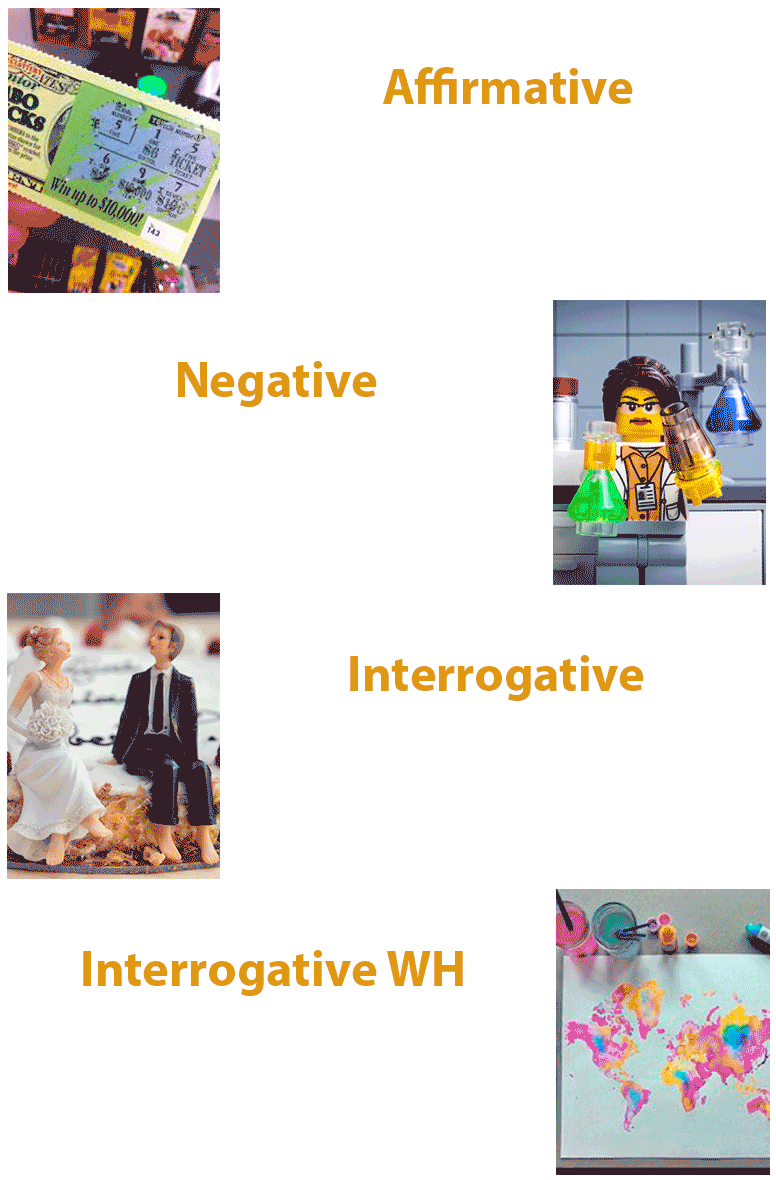
Sentences using WILL use the following form.

Activity 1
Now that you know and understand the meaning and use of will read about the expectations for the 2020 Olympic games. You will practice your reading comprehension.
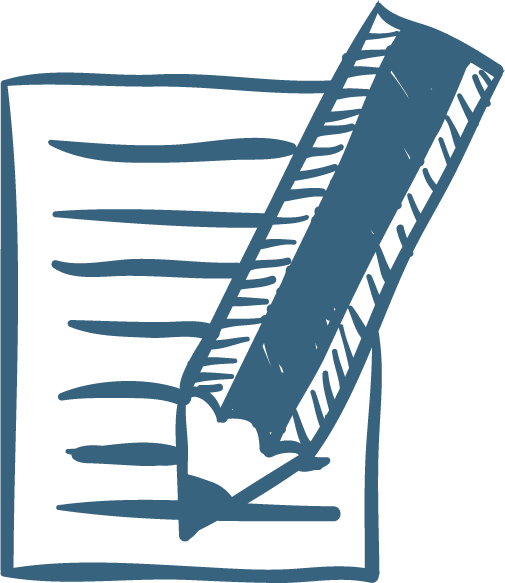
Activity 2
We have already checked the use and form of will. Now practice your knowledge in this activity.
Activity 3
Do you think about the future? On this activity, you will practice the use of will.
According to the use of will explored in the content, write between 50-70 words about where you think you will be in 2026.
Include:
• the activities you think you will do
• the place where you will be
• what your friends and family will do
Before starting, look at the example and use it as a guide.
In the year 2026, I see myself enjoying a lot everything. I will be working, doing what I love the most. I will be swamped because I will be a father and I will be taking care of my baby.
I think I will be in the city.
I don’t know what my family and friends will be doing. I think my sister will travel a lot.
My parents will be enjoying their house and their life. They will be going out a lot and having fun.
That’s the way I see myself in the future.
Once you finish your writing, use the following chart to assess your work.

Activity 4
You will practice your listening comprehension by listening to some sports commentators talking about their “Expectations for Tokyo 2020”. According to the content answer the following questions using your own words.
1. In general, which is the opinion of the commentators?
2. What do they expect from the Olympics in Tokyo?
Read the example:
The commentators think the organisation will have to be excellent and many people will have to work really hard to make this dream come true. They believe the Olympics will be one of the most significant events ever. Famous people all over the world will buy tickets to be there.


Activity 5
Every job interview is important, and they all include this question “Where will you be in 10 years?” On this activity, you will practice fluency and pronunciation as well as grammar.
Make sure you include in your response:
At least 2 affirmative sentences, 2 negative sentences and 1 interrogative sentence.
Remember that your response should be no longer than 1 minute.
Listen to the example:
Once you are ready, record your speech. When you finish, use the rubrics to check your score.
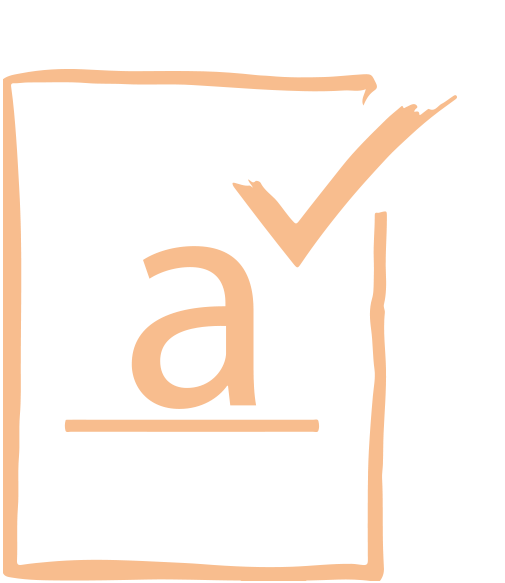
After reviewing all the information about future with will in the content, it is time to put your knowledge to practice. Use the verbs in the box to complete the exercise coherently. Do not forget to use the verbs accordingly, and if necessary use negative and interrogative forms.
• ELT base. (2008-2016). ELT base. Retrieved 22/09/16 from http://www.eltbase.com/notes.php?id=59
• Swan, M. (2005). Practical English Usage. En M. Swan, Practical English Usage (págs. 616 - 618). New York: Oxford University Press.